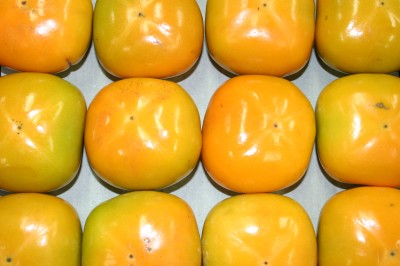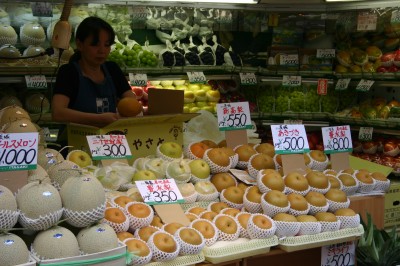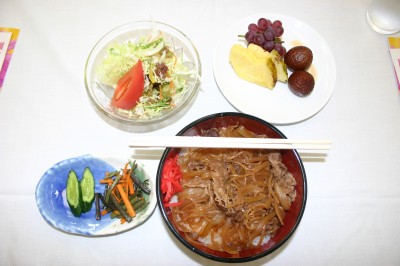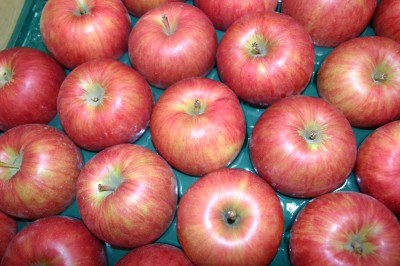Welcome to Tokyo: Here is a city that pulsates with efficiency and busyness, where a considerable portion of its 12 million inhabitants seems glued to mobile phones, and where traffic zooms by in several layers above and below ground. This is also a city in which you can come home to your own personal chirping cricket. In the midst of the hubbub the citizens can buy a tiny oasis of nature: a little plastic container complete with a colourful flower and a real, live singing cricket.
Odd and cute in their own peaceful-sounding way, the crickets for sale are a but a minor diversion that I spot on my tour of the 40,000 square metres state-of-the-art Zen-Noh fruit and vegetable centre under the auspices of the Japanese farmers coop.
Huge and almost perfectly round apples, tomatoes and pears, crispy and juicy cucumbers, and sweet-tasting pumpkins and persimmons are some of the fruits and veggies that make their way through the centre with a journey from farm to consumer that does not last more than a day. Speed, however, is not the only priority. Quality control and traceability are considered imperative. Each individual fruit and vegetable is checked, graded, controlled, packed and labelled so that the consumer can always be ensured of the exact origin. And each store receiving the goods receives them packaged and labelled in the way they want them, such as two tomatoes and one eggplant per package from a specific farmer. Freshness during the handling process is ensured by temperature control and removal of ethylene gas.
The Japanese are paying extreme attention to promotion of their own agricultural products these days. And no wonder. This year their self-sufficiency measured in calories was only 39 percent – down from the 1965 level of 73 percent. Not only is this a bit rough on the agricultural economy, import of food and feed from abroad leaves a larger global footprint due to transport fuel and is also leaving its mark on the health of the population because food imported from abroad tends to contain more fat. The agricultural ministry has therefore introduced the policy of “Shokuiku”. This is a concept that educates the public holistically – starting with the school children – about food, its health properties, its culture and its origins.





